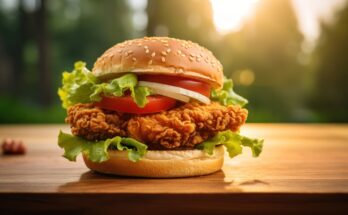Leopard geckos are cute little lizards that have a penchant for going long distances without food. While this behavior may be alarming to new pet owners, it is actually a natural aspect of a leopard gecko’s reptilian constitution.
But how long is too long
In this article we will discuss how long your leopard gecko can go without food if it is dangerous and the possible reasons why he stopped eating in the first place.
How long can your leopard gecko go without food?

Leopard geckos can easily go without food for 10-14 days at a time. Wild leopard geckos can forage for longer periods, possibly up to two or three months, but this is not recommended in captivity.
In addition, it is important to remember that young animals need food more often than adult animals due to their lower fat reserves.
They also need the extra energy to speed up their growth.
How can leopard geckos survive without food for so long?
Leopard geckos can go so long without food because of the fat deposits in their tails. These deposits give your body the energy it needs to survive.
The thicker and fuller a leopard gecko’s tail, the longer it can go without food. However, remember that this is strictly a survival mechanism.
It is best if you always make sure to feed your leopard gecko regularly and sufficiently.
There is another factor in the eating habits of leopard geckos. During the winter, these reptiles go into hibernation, essentially the cold-blooded equivalent of hibernation.
This slows down their metabolic processes and allows them to survive on fewer calories. This also means that they eat less. A leopard gecko hibernating in winter can go without food for up to three months.
How often should a leopard gecko eat?

As reptiles, adult leopard geckos do not usually require daily food.
This is especially true in winter when metabolism slows down due to falling temperatures.
Since they don’t need to be fed every day, their grooming routine is considered fairly low maintenance. Ideally, it would be good if you fed your adult leopard gecko at least every two to three days.
If your leopard gecko does not eat at least once a week, it risks losing weight and becoming weak or sick. Hatchlings or young leopard geckos should be fed daily; This also applies to sick geckos.
Regardless of the age and energy needs of your leopard gecko, you should always make sure it has enough fresh water available.
Mating season:
During the breeding season, it is common for leopard geckos – both male and female – to stop eating for days or even a few weeks.
This usually occurs at the beginning of the breeding season.
In this case, you should not force him to eat, but rather keep an eye on him to make sure that your lion does not lose too much weight. because it could be a sign that something else is wrong.
Pregnant females:

Pregnant females may stop eating a few days before laying eggs.
Once they lay their eggs, they have to start eating again. The few days they go without food during this time do not significantly affect their health.
When does malnutrition become dangerous for leopard geckos?
Mandarin skin leopard gecko in a man’s palm
Leopard geckos that do not eat for more than two weeks are at risk of developing health problems.
Leopard geckos that go without food for more than 10-14 days risk weight loss, weakness, illness and (in extreme cases) death.
They can go without food for weeks or even months, but chances are their health will not be optimal. If your leopard gecko has passed the two-week mark and still hasn’t eaten, it’s time to see a vet.
A leopard gecko that has not eaten for two to three months is at serious risk of serious health problems.
Why isn’t my leopard gecko eating?
There are several possible reasons why your leopard gecko is refusing food.
These include:
Cold temperatures:
As completely cold-blooded reptiles, leopard geckos rely on external heat sources to warm their bodies, which is essential for digestion. If your leopard gecko does not get warm enough, it may not be able to digest its food.
In this case, it may go into hibernation and slow down its food intake or stop eating altogether. Fortunately, this usually disappears within a few months or when the temperature rises.
Stress:
Stress often causes animals to change their eating habits, usually by reducing their food intake. Common causes of stress include inadequate fencing, lack of habitat protection, excessive heat or cold, and changes in habitat.
Illness or injury:
If your leopard gecko is ill or injured, this will obviously affect its appetite.
If you suspect your pet is unwell, contact a veterinarian immediately.
Dehydration:
Leopard geckos need access to clean water daily. If they are dehydrated, they may decide to stop eating. This is because the fermentation process uses water.
What do leopard geckos eat?
Leopard gecko licking lips close up
Leopard geckos are raptorial, mean they eating insects.
As insectivores, leopard geckos feed on live insects. These include crickets, small grasshoppers, tapeworms, waxworms and mealworms.
It is important that the insects are alive when feeding. In general, you should avoid feeding your leopard gecko insects that are larger than the space between the eyes.
In addition to regular food, you can also give your pet nutritional supplements.
When should I feed my leopard gecko?
The best time to feed your leopard gecko is early in the morning or late in the evening.
This is the time when leopard geckos are most active in the wild.
Conclusion
In conclusion, leopard geckos in captivity should not go without food for more than 10-14 days.
However, most people can survive for weeks or even months without food if necessary. If your leopard gecko refuses to eat for an extended period of time, you should consider taking him to the vet to find out what’s going on.
Main causes include cold, stress, illness, injury or dehydration.



